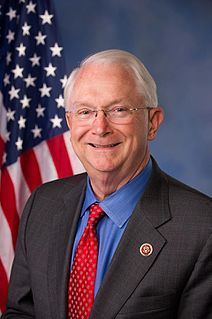A Quote by Ben Bernanke
In the typical economic recovery, a resurgent housing sector helps fuel reemployment and rising incomes.
Related Quotes
The real story in housing will be a recovery in the economy that will drive a recovery in housing, When people are working, when there are more jobs, more households forming and people go back to buying cars, they're going to want their apartments and homes. And that's when you'll start to see a recovery in home prices.
Housing in New York City has become too expensive for many average wage earners, let alone people with marginal incomes, who find themselves displaced to far-flung neighborhoods or to the streets. Racist discrimination in housing, which has been around for decades and follows centuries of slavery, has exacerbated the housing affordability crisis for people of color.
Housing has always been a key to Great Resets. During the Great Depression and New Deal, the federal government created a new system of housing finance to usher in the era of suburbanization. We need an even more radical shift in housing today. Housing has consumed too much of our economic resources and distorted the economy. It has trapped people who are underwater on their mortgages or can't sell their homes. And in doing so has left the labor market unable to flexibly adjust to new economic realities.



































